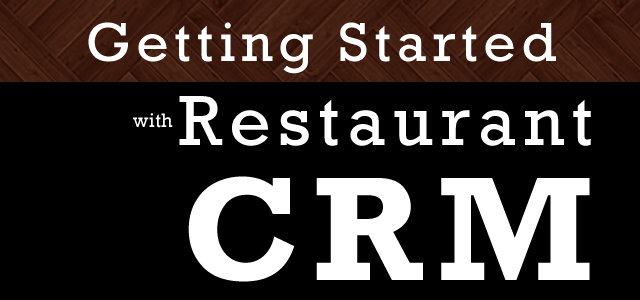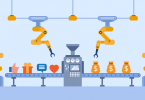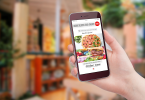I’ve been asked a couple times now what we mean when we say “restaurant CRM” here at NextRestaurants.
I get that it’s not a term that’s been thrown around much. I was interviewed recently by Eric Cacciatore, hospitality industry lover and host of the podcast Restaurant Unstoppable, and we talked about this very subject (episode publishing live soon went live on Thursday, March 27) at length.
The topic is so important.
Want to know who, specifically, claimed offers you posted on your website, or published to your email list, or, seriously, even pushed out as images on Pinterest, Instagram or ON FLYERS YOU PUT ON THE WINDOWS OF CARS in your parking lot?
There are companies right now that can help you do this, thus building the beginnings of a complete customer relationship management platform for you.”
Without getting a dime for recommending them to you, I’d tell you to check out Privy to kick this sort of thing off.
I get that there is still a hesitation to do anything too techie or data-centric in the restaurant industry. Many restaurant industry veterans feel that the emergence of too much data in decision-making is an intrusion into and distraction from the people side of the restaurant business.
And then there are the privacy concerns.
But what we mean by the term “restaurant CRM” is a digital database of identified-by-name customers that restaurants keep in order to better engage and retain them, with minimal effort, while attracting more just like them.
If you have even the most fleeting interest in (or worry about) the subject, you should give this speech transcript by Julie Brill a read. A few excerpts:
- “This gold mine of data can be put to important, even transformative uses. We are all familiar with big data’s ability to personalize our daily activities – helping companies determine which ads to pitch to us, which newspaper articles to recommend, and which movie should be next in our queue…”
- “This will be a big shift for consumers. Instead of having a handful of devices – a smartphone, tablet and laptop – that mainly serve to connect consumers to the Internet, consumers may have many devices that they buy for one purpose – making coffee, storing food, driving to work – but that collect and use a vast amount of personal information about them…”
- “I believe we should all be concerned about the use of deeply sensitive personal information to make decisions about consumers, outside a legal regime that would provide notice and an opportunity to challenge the accuracy of the data. Similarly, we should be concerned about the risk that such sensitive personal information may fall into the wrong hands through a data breach…”
- “I believe we should be concerned about the damage that is done to our sense of privacy and autonomy in a society in which information about some of the most sensitive aspects of our lives is available for analysts to examine without our knowledge or consent…”
So, again, I get the concern about letting data become the overlord into how we run restaurants, let alone data dictating the all-important guest interaction. No one wants a robotic experience when eating out — it’s a social experience, whether that’s at a sports bar, QSR, fast casual, casual dining, or fine dining restaurant. It’s not a tech experience.
But…
We’re publishing a series on restaurant CRM here at NextRestaurants for a reason: it can totally reshape the decisions you make and add a dose of reality. Whether you’re an independent owner, chain marketing leader, or big brand CEO, you just can’t work off of gut alone anymore, not when there is data AVAILABLE to help you.
If a vendor were to come to you and say they’ve got a tool, a service, a product, that will help you drive in more new guests from your target audience, would you go with your gut and say yes to them, without diving in deeper? No. You’d ask for proof. You’d want data behind their claims.
It’s really no different with running your restaurant.
You can now make backed-by-proof decisions for your marketing and your operations based on the data you collect, if you’re working with the right partners. You can make smarter decisions with evidence for them.
And on the topic of restaurant CRM, you can now make your desire to get to know your customers and more doable thing. We all know turnover in the industry is horrid. That makes it tough to REALLY count on your staff to KNOW customers when they walk in the door. Technology and data make that possible.
Want to know what Billy Johnson’s favorite meals are, or his favorite day of the week to visit, or time of day, or favorite beverage to accompany those meals? While it may seem impossible to manage EVERY interaction on a single individual basis given your existing resources, you can at least group your favorite customers by similarities like these — and THAT can direct your marketing efforts.
There are companies that can help you do this. Without any compensation for mentioning them, I’d tell you Swipely is your first place to go start researching this.
It doesn’t HAVE to change how your host or servers greet people. It can merely influence and shape how you plan your promotions and how you communicate with guests when they’re not in your venue.
Why would you NOT want that measurable insight? You’re operating on thin margins right now as it is and competition has never been tougher. Why not try to make smarter decisions to maximize those profits?
When we say restaurant CRM, we’re talking about it being a great time for restaurants of all sizes to build affordable, manageable, digital systems to engage and retain guests like never before.
You’ve got to get on this bandwagon. If you’ve got a take on this subject, we really hope you’ll participate in our ongoing discussion about restaurant CRM, detailed in this post.
If you’re a Twitter user, let’s talk about it using #restaurantCRM.
And we always welcome your comments below!







